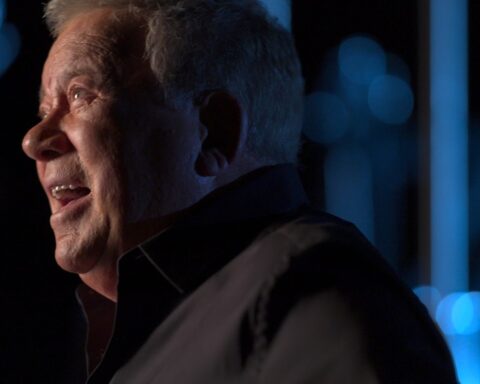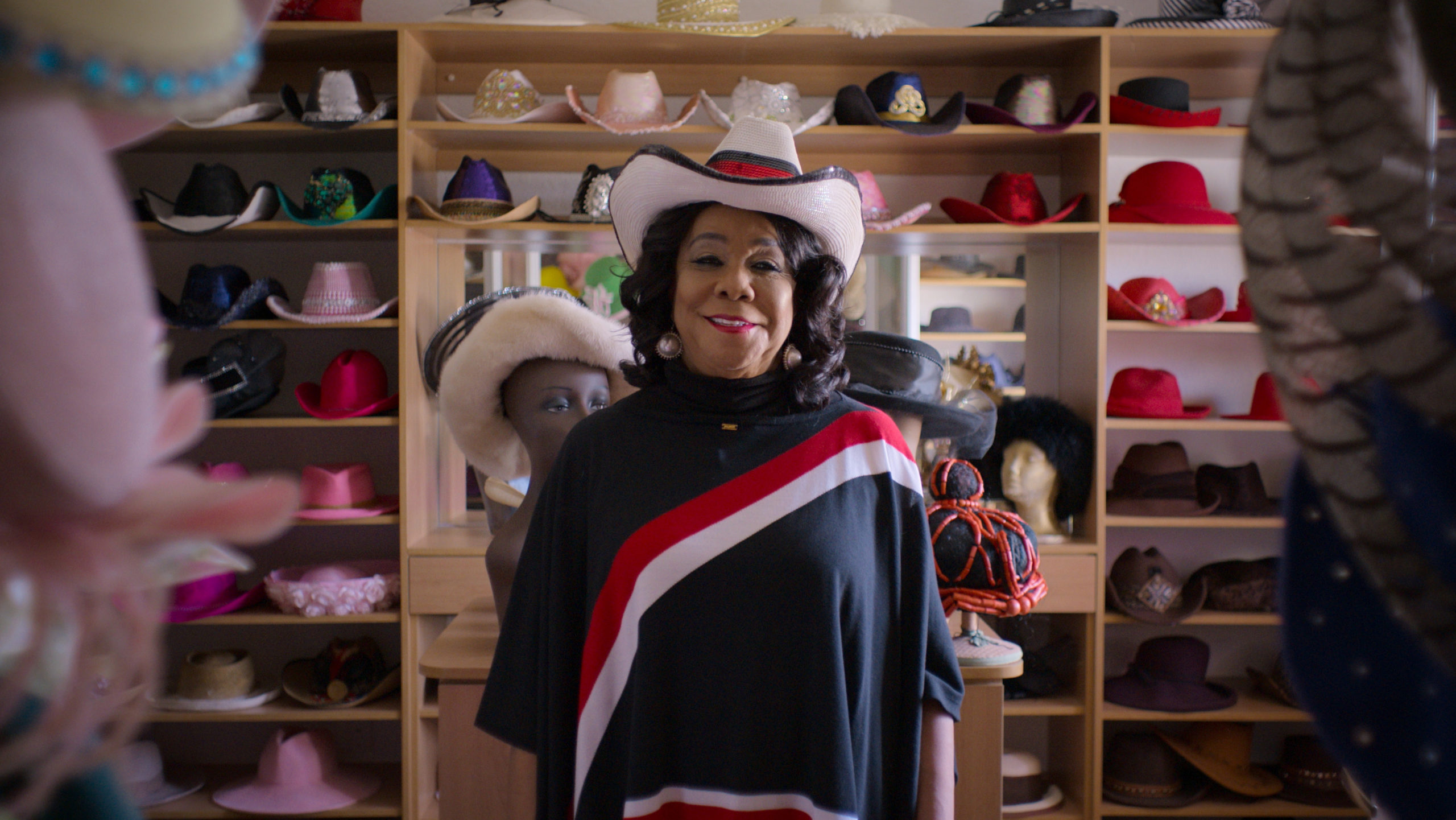Tina
(USA, 118 min.)
Dir. T.J. Martin, Daniel Lindsay
“I have analysed it,” says Tina Turner to her author Kurt Loder in an archival interview in Tina. “I said ‘What’s wrong with me?’ I’ve looked at myself in the mirror stripped of make-up and without hair. Why can’t someone see the beauty in the woman who is who I am? Not a goddamn person had found it.”
Turner’s poor history with men is obviously a sensitive subject as this sad clip conveys. Tina Turner is sick of talking about Ike. She says it numerous times in both the archival footage and contemporary interview that appear in Tina, the new documentary about her life and music. It’s a fair question for its time, however, as Turner joined Loder in penning her biography largely to tell everything about her tumultuous relationship with Ike in hopes of laying the conversation to rest. As ensuing clips in Tina suggest, Turner’s plan backfired. She’s still talking about it 35 years after the book’s publication and 41 years after the divorce. Journalists make her marinate in an abusive relationship. One archival snippet even sees Turner have a physical reaction to “the Ike question” as she pauses the interview to cool herself off. In spite of the attention the relationship consumes, Turner doesn’t let it define her even if biographers and filmmakers fall back onto it.
The attention that Tina devotes to the Tina and Ike Turner relationship is perhaps inevitable in charting the narrative for the Queen of Rock. After all, one can’t discuss Anna Mae Bullock’s journey to becoming Tina Turner without mentioning Ike. But there’s already been one movie devoted to their relationship, the biopic What’s Love Got to Do with It? starring Angela Bassett as Tina and Laurence Fishburne as Ike. The difference between What’s Love Got to Do with It? and Tina, however, is one of definition. The drama, great as it is, leans a bit too hard on its portrayal of the rocker as a victim. The documentary is a redemption song. It’s a survivor’s story and a hero’s farewell.
Directors T.J. Martin and Daniel Lindsay, Oscar winners for Undefeated, give Tina Turner the last word on her life work. Tina presents itself as a farewell to fans, but it could also be an introduction. This doc isn’t quite a cradle to grave narrative, nor a greatest hits record. It captures the essence of Turner’s contribution to rock music and lets her close the book on her own terms. Few rock ‘n’ roll narratives could have such a satisfying ending.
The musical numbers are tastefully curated. They showcase Turner in her sultry, sweaty prime and Tina offers an electric concert that leaves little doubt of Turner’s place in rock ‘n’ roll hall of fame. From rocking out in Bob Mackie dresses to owning the stage with the big shock of hair that defined her comeback years, the archival clips afford a sense of Turner’s power as a performer. Fans might be surprised how few of Turner’s most popular songs don’t make the soundtrack. For example, “The Best” might be a fitting number to place anywhere in a tribute to this the rock icon. But perhaps it’s a bit too on the nose—or overly associated with Schitt’s Creek nowadays.
“What’s Love Got to Do with It?”, however, rightly receives an act of its own. The doc positions the song as Turner’s comeback and guides the audience through the ins and outs of picking, performing, producing, packaging, and perfecting a song. They nail it, just as Turner did with the 1984 chart topper that she never wanted to record. It isn’t new information that Turner didn’t care for the song when her manager pitched it to her. At 44-years-old, however, she might not have seemed like the obvious choice for a poppy love song. However, few pop stars have the rocker’s well-documented hardships and massive pipes to vocalise the lyrics of heartbreak. The “anti-love” song, which Tina conveys was recorded like an act of going for a run—slowly warming up Turner’s vocals before jogging at full force—and let her redefine herself when so many figures in the industry had put her in a box. As a female solo act, she has few equals. The film conveys this point through speaks like Oprah Winfrey and Angela Bassett who speak warmly of the power they drew from Turner’s voice.
Martin and Lindsay smartly select key moments from Turner’s life to focus and sharpen their doc. Structuring Tina in five acts, they explore the arc of her musical career through peaks and valleys, hardships and hits, beginning and endings. For every “What’s Love Got to Do with It?” there’s a “River Deep – Mountain High” that didn’t originally land as expected, and they probe the social-political backdrop of Turner’s career to unpack why a Black woman with a ferocious voice couldn’t find mainstream success in America, eventually going to London to re-establish herself.
The doc’s focus also makes the fallback on the Tina-Ike narrative somewhat forgivable. There’s no way one can make a doc about Tina Turner without this chapter of her story. The accounts of abuse are harrowing, and worth repeating for the #MeToo generation as Turner gets renewed credit for standing up to an abusive husband. The film uses the Tina-Ike narrative as a building block for a greater arc of redefinition—although one wishes that Martin and Lindsay and listened a bit closer to the archival footage and noted how frustrated Turner gets when asked to dredge up the past. Even reviewing the film is mildly frustrating for the amount of space Ike occupies.
Turner, who appears in the film at 82 years old, has nothing left to prove. She offers few regrets in the doc. Instead, she looks forward. The film ends with Turner finally finding love with her Swiss husband, Erwin Bach. Unlike most rockumentaries, Tina has a happy ending as Turner steps away from the microphone to enjoy what she missed during the years of her success. Love, it seems, has everything to do with it.
Tina premieres on Crave on March 27 at 8:00 pm ET.













